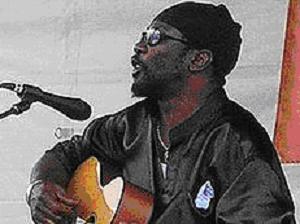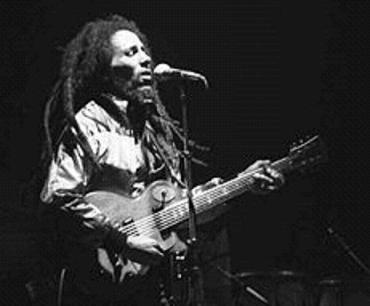Reggae
(New page: Category: Genres right == Reggae. == This is a musical form first developed in Jamaica in the mid-late 60’s. Whilst it is a term that is somet...) |
|||
| Line 91: | Line 91: | ||
[https://www.guitarmasterclass.net/rhythm-guitar/bob-marley-style-lesson/ Bob Marley Style Lesson with Joe Kataldo.]<br> | [https://www.guitarmasterclass.net/rhythm-guitar/bob-marley-style-lesson/ Bob Marley Style Lesson with Joe Kataldo.]<br> | ||
[https://www.guitarmasterclass.net/ls/reggae_style/ Reggae Style Bass Lesson with Bogdan Radovic.]<br> | [https://www.guitarmasterclass.net/ls/reggae_style/ Reggae Style Bass Lesson with Bogdan Radovic.]<br> | ||
| + | --[[User:Sensible Jones|Sensible Jones]] 22:54, 22 September 2009 (CEST) | ||
Revision as of 20:54, 22 September 2009
Contents |
Reggae.
This is a musical form first developed in Jamaica in the mid-late 60’s.
Whilst it is a term that is sometimes used to envelope and describe all kinds of Jamaican music it is essentially a separate entity that grew up at the same time as Ska and Rocksteady. The main difference between Reggae and these other two genres is that Reggae mainly focus’ on the 2nd and fourth beats in a Bar, the ‘Skank’ or Off-beat, but also with some kind of Rhythmic emphasis on the third beat.
It is this ‘third beat’ that is used to differentiate between Reggae, Ska and Rocksteady.
A usual guide is that Ska is faster than Reggae and Rocksteady is slower.
How did Reggae get named?
According to the 1967 edition of the Dictionary of Jamaican English ‘Reggae’ was a ‘recently established spelling for the word Rege’ which basically translated as Rags, Ragged Clothing or A Quarrel or Row.
As a Musical Term it first appeared in print on the label of the 1968 disc ‘Do the Reggay’ by Toots and the Maytals.
Toots Hibbert of Toots and the Maytals.
Some argue that it had been being used in Jamaica before this time as a description for a slower type of Rocksteady.
Recording Artist Derrick Morgan says:-
“We didn't like the name Rocksteady, so I tried a different version of "Fat Fat Man". It changed the beat again, it used the organ to creep. Bunny Lee, the producer, liked that. He created the sound with the organ and the rhythm guitar. It sounded like ‘reggae, reggae' and that name just took off. Bunny Lee started using the world and soon all the musicians were saying ‘reggae, reggae, reggae’ “
Other’s have cited it as being a derivation of the Jamaican word ‘Streggae’…
Toots (of the Maytals) explains:-
There's a word we used to use in Jamaica called 'streggae'. If a girl is walking and the guys look at her and say 'Man, she's streggae' it means she don't dress well, she look raggedy. The girls would say that about the men too. This one morning me and my two friends were playing and I said, 'OK man, let's do the reggay.' It was just something that came out of my mouth. So we just start singing 'Do the reggay, do the reggay' and created a beat. People tell me later that we had given the sound it's name. Before that people had called it blue-beat and all kind of other things. Now it's in the Guinness World of Records.
There is yet another explanation from none other than the King of Reggae Bob Marley!
He claimed that the word reggae came from a Spanish term for "the king's music". The liner notes of To the King, a compilation of Christian gospel reggae, suggest that the word reggae was derived from the Latin Regi meaning "to the king."
Bob Marley.
Origins.
Although strongly influenced by traditional African and Caribbean music, as well as by American Rhythm and Blues, Reggae owes its direct origins to the progressive development of Ska and Rocksteady in 1960s Jamaica.Ska music first arose in the studios of Jamaica over the years 1959 and 1961, itself a development of the earlier Mento genre. Ska is characterized by a walking bass line, accentuated guitar or piano rhythms on the offbeat, and sometimes jazz-like horn riffs. Aside from its massive popularity amidst the Jamaican ‘Rude Boy’ fashion, it had gained a large following among the ‘Mods’ (Modernists) in Britain by 1964. According to Reggae Historian Steve Barrow, Rude Boys began deliberately playing their Ska records at half speed, preferring to dance slower as part of their tough image.
By the mid-1960s, many musicians had begun playing the tempo of Ska slower, while emphasizing the walking bass and offbeats. The slower sound was named Rocksteady, after a single by Alton Ellis. This phase of Jamaican music lasted only until 1968, when musicians began to slow the tempo of the music again, and added yet more effects. This led to the creation of Reggae.
Sub-genres of Reggae.
Early Reggae released in England was also known as ‘Skinhead Reggae’. This was due to it’s popularity with the young, burgeoning Skinhead movement emerging from the Working Class of late 60’s Britain. Another characteristic of this early Reggae was the influence of American Soul and Funk on the musicians. Labels such as Stax, Motown and Atlantic had a great effect and it was the bond between the two styles that was the backbone of this early form.
The main characteristic defining early Reggae from Rocksteady is the "bubbling" organ, a percussive style of playing that brought to closer light the eighth-note subdivision within the groove. The guitar "skanks" on the second and fourth note of the bar were more frequently doubled up in recording studios using electronic tape echo effects, thus complementing the double-time feel of the organ bubble. Overall more emphasis was on the groove of the music; the growing trend of recording a "Version" on the B-side of a single produced countless instrumentals led by a horn or organ.
Roots Reggae.
Roots reggae is a spiritual type of music whose lyrics are predominantly in praise of Jah (God). Recurrent lyrical themes include poverty and resistance to government oppression. Many of Bob Marley's and Peter Tosh's songs can be called roots reggae. The creative pinnacle of Roots Reggae was in the late 1970s. Musically, on the song "Roots, Rock, Reggae" Marley devised a new style of "off beat" music where a bar of six beats is played, with the guitar skanking on the fourth and sixth beat. Although entirely separate from the beats of Ska, Rocksteady, Reggae, Skank, Flyers, Rockers and all later styles, this unique beat seems to have been so closely associated with Marley that few others adopted it.
Dub Reggae.
Dub is a genre of reggae that was pioneered in the early days by studio producers Lee 'Scratch' Perry and King Tubby. It involves extensive remixing of recorded material, and particular emphasis is placed on the drum and bass line. The techniques used resulted in an even more visceral feel described by King Tubby as sounding "jus’ like a volcano in yuh head." Augustus Pablo and Mikey Dread were two of the early notable proponents of this music style, which continues today.
Rockers Reggae.
The rockers style was created in the mid-1970s by Sly & Robbie. Rockers is described as a flowing, mechanical, and aggressive style of playing Reggae. One article calls the rockers era the "Golden Age of Reggae".
Lovers Rock.
The Lovers Rock sub-genre originated in South London in the mid-1970s. The lyrics are usually about love. It is similar to Rhythm and Blues.
Dancehall.
The Dancehall genre was developed around 1980. The style is characterized by a deejay singing and rapping or toasting over raw and fast rhythms. Ragga (also known as raggamuffin) and reggae fusion, are subgenres of dancehall where the instrumentation primarily consists of electronic music and sampling.
In February 2009, Dancehall with explicit lyrics was banned from the airwaves in Jamaica.
Reggaeton.
Reggaeton is a form of dance music that first became popular with Latino youths in the early 1990s based on Spanish Reggae from Panama which was invented on 1970s. It blends Reggae and Dancehall with Latin American genres such as Cumbia (a backbeat type of Latin music, originating in Colombia), Bomba and Plena, as well as Hip Hop.
Relevant Lessons.
Reggae Style Lesson with Gabriel Leopardi.
Offbeat Reggae with Sinisa Cekic.
Bob Marley Style Lesson with Joe Kataldo.
Reggae Style Bass Lesson with Bogdan Radovic.
--Sensible Jones 22:54, 22 September 2009 (CEST)








